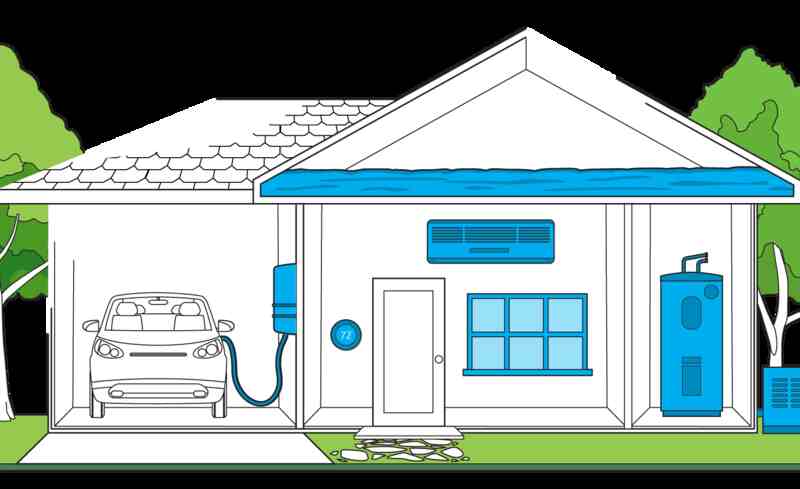In today’s world, where energy efficiency and environmental consciousness are paramount, finding ways to save on home energy not only benefits your wallet but also reduces your carbon footprint. Whether you’re looking to lower your monthly utility bills or make your home more eco-friendly, here are some valuable tips to help you achieve your goals.
1. Upgrade to Energy-Efficient Appliances
Investing in energy-efficient appliances can lead to substantial long-term savings. Look for the ENERGY STAR label when shopping for new appliances, as these are certified to meet stringent energy efficiency standards. Replacing old, energy-guzzling appliances with newer, efficient models can significantly reduce your energy consumption.
2. Seal Air Leaks and Insulate
A well-insulated and airtight home is essential for energy efficiency. Check for air leaks around doors, windows, and other openings. Seal any gaps with weatherstripping or caulking. Additionally, ensure your home is adequately insulated, especially in the attic and walls. Proper insulation helps maintain a consistent indoor temperature, reducing the need for excessive heating or cooling.
3. Use a Programmable Thermostat
A programmable thermostat allows you to set different temperature levels for various times of the day. You can lower the temperature when you’re away from home or asleep and increase it when you’re active. This simple adjustment can lead to significant energy savings without sacrificing comfort.
4. Optimize Heating and Cooling Systems
Regular maintenance of your heating and cooling systems can improve their efficiency. Change air filters regularly, and schedule professional inspections to ensure they are running smoothly. Consider upgrading to a more energy-efficient system if your current one is outdated.
5. Harness Natural Light
Maximize the use of natural light during the day by keeping curtains or blinds open. This reduces the need for artificial lighting and can lead to energy savings. Additionally, use energy-efficient LED or CFL bulbs for your lighting needs.
6. Unplug Devices and Appliances
Many devices and appliances continue to consume energy even when turned off. This phenomenon is known as “phantom power” or “vampire energy.” Unplug chargers, electronics, and appliances when not in use, or use power strips to easily disconnect multiple devices at once.
7. Wash Clothes Wisely
When doing laundry, use cold water whenever possible, as heating water accounts for a significant portion of energy usage in washing machines. Also, wait until you have a full load to run your washing machine and dryer to maximize energy efficiency.
8. Cook Efficiently
When cooking, match the size of your cookware to the size of your burners or heating elements. Using lids on pots and pans helps retain heat and cook food faster. Consider using a microwave or toaster oven for smaller meals, as they are more energy-efficient than a full-sized oven.
9. Plant Shade Trees
Strategically planting shade trees around your home can reduce the heat absorbed by your property during the summer. This natural cooling effect can help lower your cooling costs by reducing the need for air conditioning.
10. Educate Yourself About Energy Plans
Understanding your energy plan and comparing it to other options can result in significant savings. For instance, you can explore fixed-rate plans or green energy options offered by providers like Corgi Home Plan. Researching and choosing the right plan can lead to substantial savings on your energy bills while aligning with your environmental goals.
11. Conduct an Energy Audit
Consider scheduling a professional energy audit for your home. Energy auditors can identify areas where your home is losing energy and provide recommendations for improvements. Many utility companies offer energy audit services at a reduced cost or even for free.
12. Practice Water Conservation
Reducing hot water usage can lead to energy savings. Fix leaks promptly, install low-flow faucets and showerheads, and consider insulating your hot water pipes to minimize heat loss.
By implementing these tips, you can significantly reduce your home energy consumption and lower your utility bills. Additionally, your efforts will contribute to a more sustainable and eco-friendly living environment.


